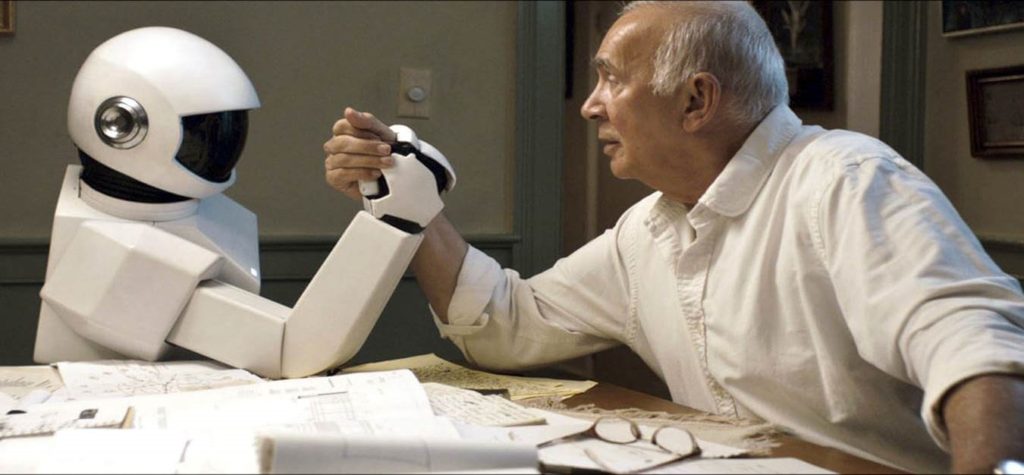The robots are coming!
That well-worn phrase used both in fiction and serious journalism encapsulates a fear that many share — that machines of all sorts are poised to take over every function and responsibility formerly performed by mere mortals.
5 career competencies where humans win hands down
I have only one response: Relax.
In my new book, The Anticipatory Organization, I repeatedly stress the point that, no matter the level of technological advances we will witness in the future, there are a number of career competencies and attributes that machines simply cannot do better than human beings.
To that end, I’ve identified 10 career competencies that even the most sophisticated machine will have great difficulty outdoing versus a human counterpart.
Here are the first five. Look for the remaining five in a subsequent blog.
1. Communication
When you consider the varied ways we communicate—be it verbally, in written form and even in body language—it’s easy to see how only a human being can accurately capture and interpret the subtlety and varied meanings that communication can carry.
Think back to a time when an email you sent—as technologically based a form of communication that exists—was somehow misinterpreted or misconstrued.
That’s because the subjective elements of communication—components of communication that only humans have access to—were absent.
Context and expression both visual and verbal all play a key role in good communications.
2. Collaboration
My Anticipatory Organization Model stresses the value of collaboration.
Collaboration, as opposed to cooperation—which is based on scarcity because you have to do it—is based on creating abundance for all and is something that all sides choose to do.
Collaboration is based on high levels of trust and the idea that working together builds something better for us all.
Physical or virtual collaboration is a valuable nuance and mindset that machines will have difficulty with.
3. Customer Service
A machine can certainly fulfill a customer’s order quickly and efficiently and answer a basic question.
And, there are some tools such as advanced customer relationship management software (CRM) that help identify consumer interests and preferences.
But all of that cannot replicate the human capacity to not only fully interpret the subtle nuances in voice and facial expression, but also what the person is thinking but not saying.
In addition, working with a customer over time creates a trusting relationship, and over time a good customer service representative develops an anticipatory sense of what a customer may want or need—often before the customer is aware of it.
Here, an understanding of both Hard and Soft Trends can be exceedingly valuable.
4. Adaptability
Another core principle of an Anticipatory Organization and mindset is a willingness to Fail Fast in order to learn faster.
As I routinely point out, innovation at all levels—particularly those that fall into the game changing category—simply isn’t possible with an attitude that not only is critical of mistakes but, in effect, makes people afraid to experiment and pursue innovation out of fear of failure.
That sort of adaptability requires someone to be open-minded and non-judgmental—emotional and mental attitudes that humans can possess and leverage.
5. Relationship building
Through the use of the concept of learning to identify the Hard Trends that will happen, my Anticipatory Organization Model pinpoints a number of future certainties.
One in particular stands out among all the others: The number one certainty in this world is that the future is all about relationships.
That only makes sense.
Certainly, technology is advancing at an exponentially fast rate, increasing its varied capabilities at an astonishing speed. But, technology is an enabler, it is not good or evil.
Let’s face it, you could use the same technology to cure cancer as give you cancer. It’s not the tool, it’s how you use it.
All the technology in the world is secondary to interaction between people—constructive, trust-based interaction that comes from people actively working to improve their people skills, promote true collaboration and actively shape a positive future.
Not only are those attributes that machines will have great difficulty replicating, without positive relationships, even the most amazing technology can become irrelevant or even damaging.
What do you think? What other career competencies can you think of that make us, humans, irreplaceable? I would love to hear your thoughts in the comments below!
In the meantime, check out the Anticipatory Organization System. It consists of a corporate training system, as well as an individual learning experience.
You can also order the book The Anticipatory Organization right now.
For more business tips, check our entrepreneurship section and subscribe to our weekly newsletters.
